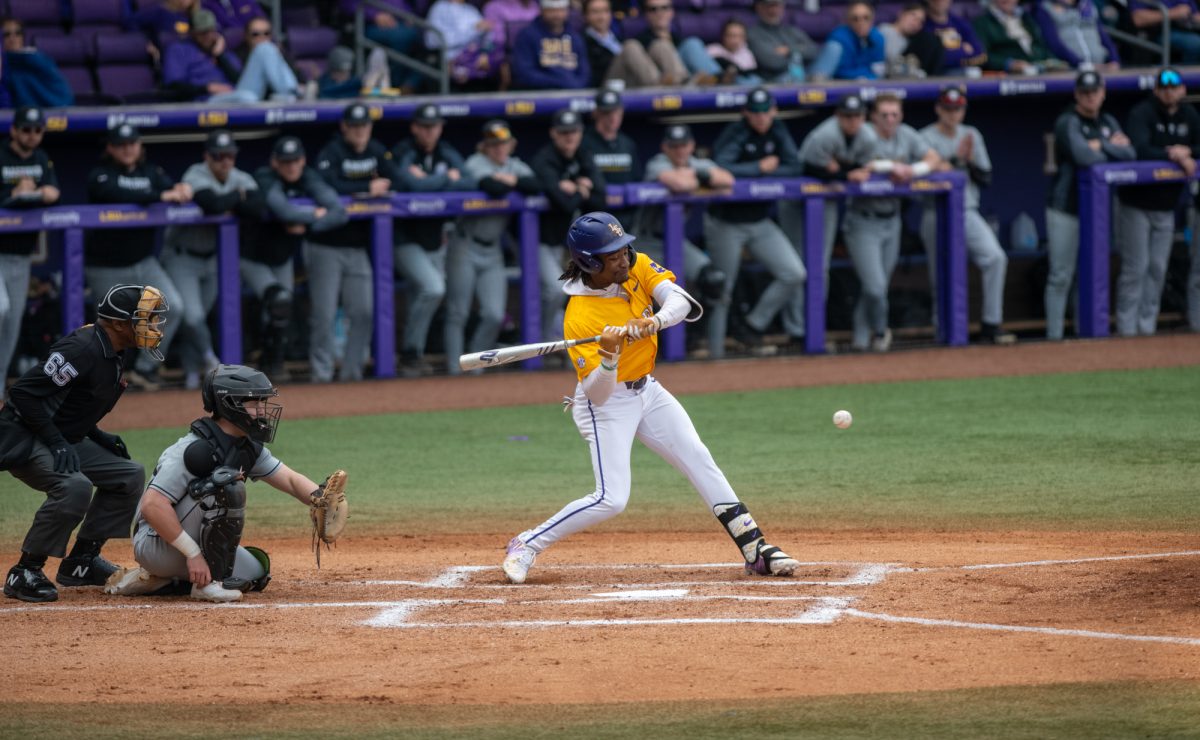It’s that time of the year: calendars are turning the page from May to June, and the best of the best in college baseball are about to begin the stretch run through the NCAA Tournament.
That also means LSU is simultaneously nearing the one-year anniversary of its electric championship run last season to give the program its seventh national title and its first since 2009.
This time, things are different, even if much of the roster looks the same (minus a few all-world talents in Paul Skenes and Dylan Crews).
LSU traveled a long road this season and practically transformed midway through the season after a disappointing beginning to SEC play. Since then, the Tigers made a run all the way to the championship match of the SEC Tournament to bring back some needed momentum.
However, all it would take is two losses to make that all for naught. Postseason baseball is the time to make your mark or go home.
With LSU’s regional opponents announced on Monday, here’s everything you need to know about what’s ahead of the Tigers.
Who are the teams in LSU’s regional?
LSU was announced as the two-seed in the Chapel Hill regional, so the team will be spending the weekend in North Carolina.
The regional is hosted by the North Carolina Tar Heels, who are the No. 4 team overall according to the NCAA’s seeding.
LSU was probably happy to end up in the only top-five regional not hosted by an SEC team, but UNC is no slouch.
As its ranking would suggest, UNC is one of the best and most well-rounded teams in the country. The Tar Heels were the ACC regular season champions
The offense generates 9 runs a game, No. 10 in the country, and is capable of generating power as well: the team ranks No. 20 in home runs per game.
Junior Vance Honeycutt leads the team in that category with 22 home runs, No. 25 in the nation, and he’s also one of the best defensive players in the country. He and sophomore Casey Cook form an elite outfield with two first team all-ACC members.
As a pitching staff, UNC has managed to keep teams off the board (No. 14 in ERA) despite two season-ending injuries to starting pitchers. Freshman Jason DeCaro has stepped up as the team’s best starter with a 3.8 ERA, and so has an elite bullpen led by reliever Matthew Matthijs.
The three-seed in the regional and LSU’s first opponent is Wofford, the Southern Conference tournament champions.
Wofford finished just fifth in the conference in the regular season but reached 41 wins on the strength of a dominant – albeit light – non-conference schedule. The Terriers ran the table in the conference tournament to appear at the national stage.
Wofford’s offense is clearly its strength, with 10.2 runs per game ranking No. 2 in the nation.
The headliner is junior outfielder Marshall Toole. Only six people in the country have more hits than Toole and only one has more stolen bases.
However, the team’s offense is deep: four other players rank in the country’s top 250 in batting average, just around .340. For reference, LSU has zero players that meet that threshold.
As a team, Wofford is No. 9 in stolen bases. The Terriers have an offense that never lets up, not even between pitches.
Wofford’s pitching is underwhelming, ranking No. 116 in the country in ERA. Starting pitcher Zac Cowan, however, gives the staff a lift with his 3.55 ERA and 10.2 strikeouts per nine innings. He pitched two crucial winning outings during Wofford’s conference tournament run.
It’s unclear how Wofford’s play will translate against an opponent like LSU or UNC. Against the only two tournament-caliber teams the Terriers faced (Georgia and Charleston, widely considered a tournament snub), they went 1-3, with their offense suffering a notable downtick.
Long Island, the final team in the Chapel Hill regional, was the Northeast Conference tournament champion after finishing second in the regular season.
The team is No. 96 in the country in scoring with 7.3 runs, making the most of its opportunities despite a middling batting average.
Senior starting pitcher Garrett Yawn is the team’s ace, being named first team all-NEC and ranking No. 92 in the country in strikeouts per nine innings.
Overall, LSU is facing a lot of offense in this regional that could seriously test its pitching depth.
When does LSU play?
LSU’s first game will be against Wofford on Friday at 11 a.m. The loser of that game is still alive in the postseason, as the regional stage of the NCAA Tournament has a double elimination format.
If LSU wins against Wofford, it will advance to play the winner of the other regional matchup, UNC-Long Island, at 4 p.m. on Saturday.
If LSU loses that game, its next game will be at 11 a.m. on Saturday against the loser of UNC-Long Island. The loser of that game will be eliminated.
From there, matchups and timing on Sunday will depend on if LSU finds itself in the losers bracket or the winners bracket.
As is the case with double elimination, play will continue until only one team is left without two losses and that team will be the winner of the regional.
How do the next stages of the NCAA Tournament work?
The next stage of the tournament is the super regionals, a best-of-three series which is held at the location of the highest-seeded team remaining.
The champion of the Chapel Hill regional will face the champion of the Tucson regional, which is favored to be Arizona.
If UNC emerges from the Chapel Hill regional, it will host the super regionals. If it doesn’t and Arizona comes out on top of the Tucson regional, the super regionals will be in Tucson.
However, if LSU wins its regional and someone other than Arizona wins in Tucson, LSU could be hosting the super regionals at Alex Box Stadium.
After the super regionals, eight teams remain in the NCAA Tournament and advance to the College World Series.
The teams are split into two four-team double elimination brackets (much like the regionals) and the champions of the two brackets meet for a best-of-three series to decide the national champion.








